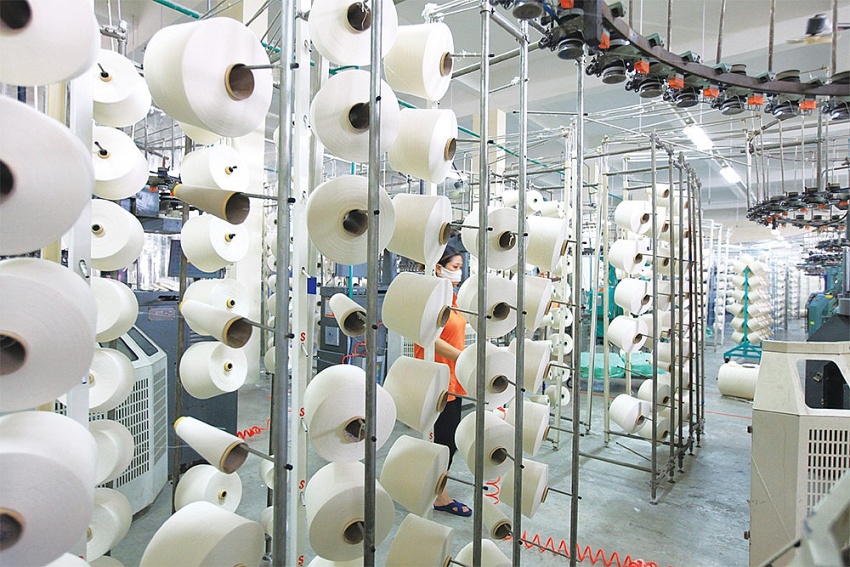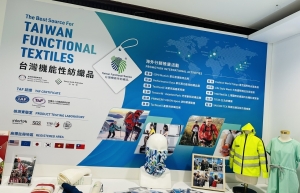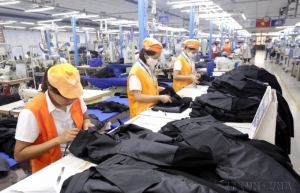Global trade hub could be answer for textile segments
The information was discussed at a conference with the Vietnamese trade office system abroad held by the Ministry of Industry and Trade (MoIT) last week, after businesses and associations submitted a proposal to the ministry.
 |
| Global trade hub could be answer for textile segments |
It is expected that in October, the associations will deploy a survey team to learn from the experiences of countries that have successfully built the global trade centre model to ensure it is suitable for reality and operates effectively.
Deputy Minister of Industry and Trade Phan Thi Thang said, “We cannot carry out outsourcing forever. The textile and footwear industry needs to master the source of raw materials and design stages. Building a trading centre to develop raw materials and accessories for the Vietnamese fashion industry is necessary.”
She suggested that the construction of such a centre for the fashion industry should have been carried out a long time ago. “Therefore, we need to speed up the implementation of the project in a specific manner, including the stages of operation, proposed policies, and mechanisms,” Thang said.
It is expected that the centre could be built from private investment capital, gathering domestic and foreign suppliers of raw materials for textile and footwear production to display and introduce products to shorten the time to find sources of supply, competitive prices.
At the same time, the centre would be able to support businesses in tracing the origin of textile and footwear raw materials to standardise and make the trading market transparent, as well as deploy activities to connect, trade, and exhibit products and technologies for the production of raw materials. It could also update trends and tech for related production to support and promote domestic raw material production activities.
Nguyen Duc Thuan, chairman of the Vietnam Leather, Footwear, and Handbag Association, said one of the difficulties is that the supporting industry for raw material supply is underdeveloped. Therefore, meeting the domestic origin ratio for raw materials as required by trade agreements is an obstacle.
“It is necessary to promote the development of the raw material supply market towards scale, standardisation and transparency by building a trading centre for developing raw materials and innovating the Vietnamese fashion industry in the southern province of Binh Duong. Only then can businesses in the leather and footwear industry, especially small- and medium-sized enterprises, have the opportunity to rise up and participate in the industry supply chain,” he said.
Pham Tuan Anh, deputy director of the Vietnam Industry Agency under the MoIT, added that the heavy dependence on imported raw materials could have a major impact on the overall development of the industry, when countries are aiming for net-zero and are setting strict regulations on supply control, requiring products to meet a high percentage of domestic origin.
“Furthermore, the import of raw materials will affect the advantage of import tax exemption for textiles and footwear products in markets where Vietnam has signed a free trade deal, and regulations on rules of origin have been implemented,” Anh said.
According to the World Trade Organization, Vietnam is the second-largest footwear exporter and the third-largest textile and garment exporter in the world.
In the first six months of 2024, the total export turnover of these two industries still reached nearly $30 billion, accounting for nearly 16 per cent of Vietnam’s total export turnover and creating nearly five million jobs, accounting for 22 per cent of Vietnam’s industrial labour force, according to the MoIT.
 | Vietnam a key partner of Taiwan's textile industry Taiwan's textile industry, which aims to innovation and sustainability in production and manufacturing, considers Vietnam as a key and close partner to grow together. |
 | Bangladeshi loss can be Vietnam’s gain in textiles Widespread political instability in Bangladesh could disrupt the global textile supply chain and accelerate diversity, including in Vietnam. |
What the stars mean:
★ Poor ★ ★ Promising ★★★ Good ★★★★ Very good ★★★★★ Exceptional
Related Contents
Latest News
More News
- Ho Chi Minh City launches plan for innovation and digital transformation (February 25, 2026 | 09:00)
- Vietnam sets ambitious dairy growth targets (February 24, 2026 | 18:00)
- Masan Consumer names new deputy CEO to drive foods and beverages growth (February 23, 2026 | 20:52)
- Myriad risks ahead, but ones Vietnam can confront (February 20, 2026 | 15:02)
- Vietnam making the leap into AI and semiconductors (February 20, 2026 | 09:37)
- Funding must be activated for semiconductor success (February 20, 2026 | 09:20)
- Resilience as new benchmark for smarter infrastructure (February 19, 2026 | 20:35)
- A golden time to shine within ASEAN (February 19, 2026 | 20:22)
- Vietnam’s pivotal year for advancing sustainability (February 19, 2026 | 08:44)
- Strengthening the core role of industry and trade (February 19, 2026 | 08:35)

 Tag:
Tag:



















 Mobile Version
Mobile Version